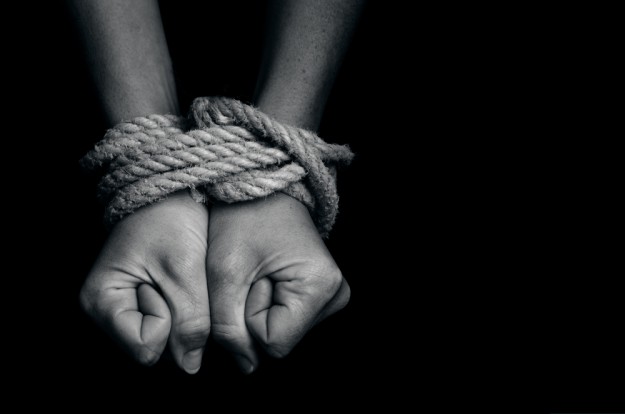Relationship: How to escape from an emotional prison?
mis à jour le 24 June 2015 à 10:28Author and psychotherapist Béatrice Copper-Royer tells you how to break free of emotionally exhausting or demanding relationships without burning bridges.
Do you have a possessive husband, an intense mother or a patronizing boss? Do your relationships feel more like an emotional prison?
In their book Quand l'amour emprisonne or in English, When Love Imprisons, the clinical psychologist Béatrice Copper-Royer and journalist Marie Guyot, illustrate how love, the supposedly warm and fuzzy feeling, can actually cause you emotional pain.
In your book, you show that imprisoning relationships are not limited to couples. Can you explain?
Yes indeed. This book has also been inspired by the children who are taken hostage during their parents' separation. Alternatively, it could speak to the parent who can't seem to get their mature children to leave the family home and who must finally resort to emotional blackmailing. It could also be the case of an older sister, in an all-powerful position, treating her younger siblings as inferiors. In the adult cases, it could be an overtly jealous husband or a tyrannical leader.
How are couples different from the perverse narcissist?
There are strong emotional expectations in both cases. But the perverse narcissist seeks to crush. They are conscious manipulators who crush one another to consolidate their power; they are predators who do not consider the other as a subject but instead, seek to own it while expecting gratitude. The logic does not apply with a colleague or relative. Through emotionally imprisoning relationships, they unconsciously seek a way to strengthen, repair, console or to be loved. They are not necessarily intrigued by solving things with harm.
But when there is real harm, what does it look like?
If there isn't any malicious intent to begin with, there will be a certain kind of violence, a sort of power that can prove to be destructive. It could at least invade another person's right and freedom to pursue his desires. A prisoner of this kind isn't always aware of his situation. But if he does, and deals with it from the get go for reasons related to his personal history, the emotional imprisonment usually ends up becoming heavy, even unbearable at times. He would feel as if he was in a deadlock.
Is it possible to break free?
Yes, but breaking free does not necessarily mean breaking ties. Rather, gaining freedom means being free to act as one wishes. This would require an introspection and reconfiguration of the relationship to rid off its toxicity, as well as discussing how they got in such a situation to begin with. This is often the case when there is an out-of-the-ordinary event: a meeting, grief, an illness, depression or a breakup. The person will be aware of the problem and attempt to break free of the infantile guardianship.
At what point does a parental relationship become an imprisonment ?
When it hinders the psychological autonomy of the child and stops their progressive growth. The child is human, he is not there to encourage, fix or provide reassurance to their parents. Some, who look at things through their own prism, are so strongly opinionated that they would end up emotionally harming the child and the adult he would grow up to be, preventing him from becoming himself.
How do you avoid being an intensely omnipotent mother?
It is not necessary to put the child as the object of attention or at the heart of everything. Otherwise, it's only logical for the child to have the impression that everything has been done for him. And this is a mindset that is very difficult to break...
Fabienne Broucaret




